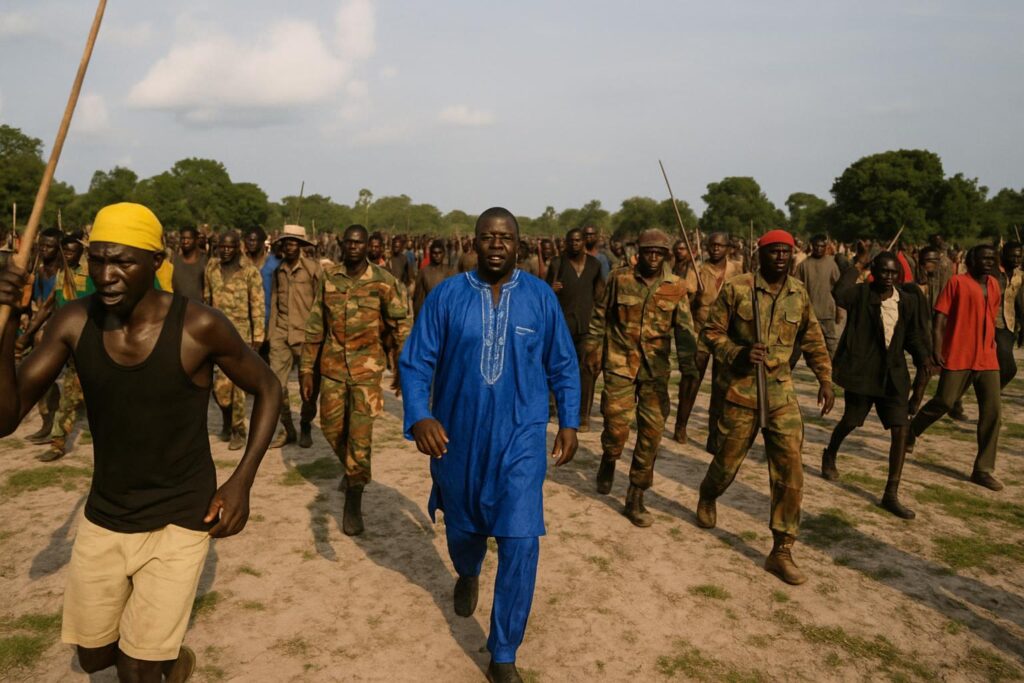Withdrawn Forces Signal Opening
On Sunday, self-proclaimed Gawaar-Nuer prophet Makuach Tut Khor ordered fighters to leave positions near Malakal, softening a three-week standoff that had alarmed residents and aid groups.
Tut framed the move as a reciprocal act after President Salva Kiir released 74 bodyguards linked to opposition leader Dr. Riek Machar Teny, describing the gesture as “all we asked for” (SSNN).
Machar Case Reaches Critical Hour
A special court in Juba is expected to decide Monday on charges that Machar’s lawyers call a misapplication of the Revitalized Peace Agreement.
Government attorneys have struggled to outline clear grounds, while defense counsel points to monitoring bodies CTSAMVM and RJMEC as the proper venues for disputes.
Community Elders Back De-escalation
Elders from Ayod and surrounding counties persuaded Tut during a three-day gathering in Ghok to test the government’s commitment to peace before considering a march on Malakal.
“Peace is better than war,” the prophet told followers, echoing a growing sentiment among displaced families weary of cyclical violence along the Nile corridor.
Government Gesture and Remaining Hurdles
Kiir’s release of detainees is viewed by diplomats as a confidence-building step, yet analysts caution that sustainable calm hinges on fully integrating opposition leaders into transitional institutions.
Oil minister Puot Kang Chuol and other charged officials remain in legal limbo until the court’s verdict, keeping tensions alive among their constituencies.
Potential Flashpoints if Talks Stall
Tut warns that any harsh sentence would amount to a declaration of tribal war, with Bor, not distant Malakal, becoming an immediate target.
Observers say the threat underlines how quickly local grievances can disrupt national ceasefire lines despite formal agreements signed in Khartoum and Addis Ababa.
Regional Observers Urge Sustained Dialogue
IGAD envoys privately welcome the prophet’s pullback but insist the court decision must be accompanied by concrete timelines for cantonment, security sector reform and economic relief.
With harvest season approaching, humanitarian agencies stress that lasting peace will allow farmers to return to fields and mitigate looming food gaps across Upper Nile.


